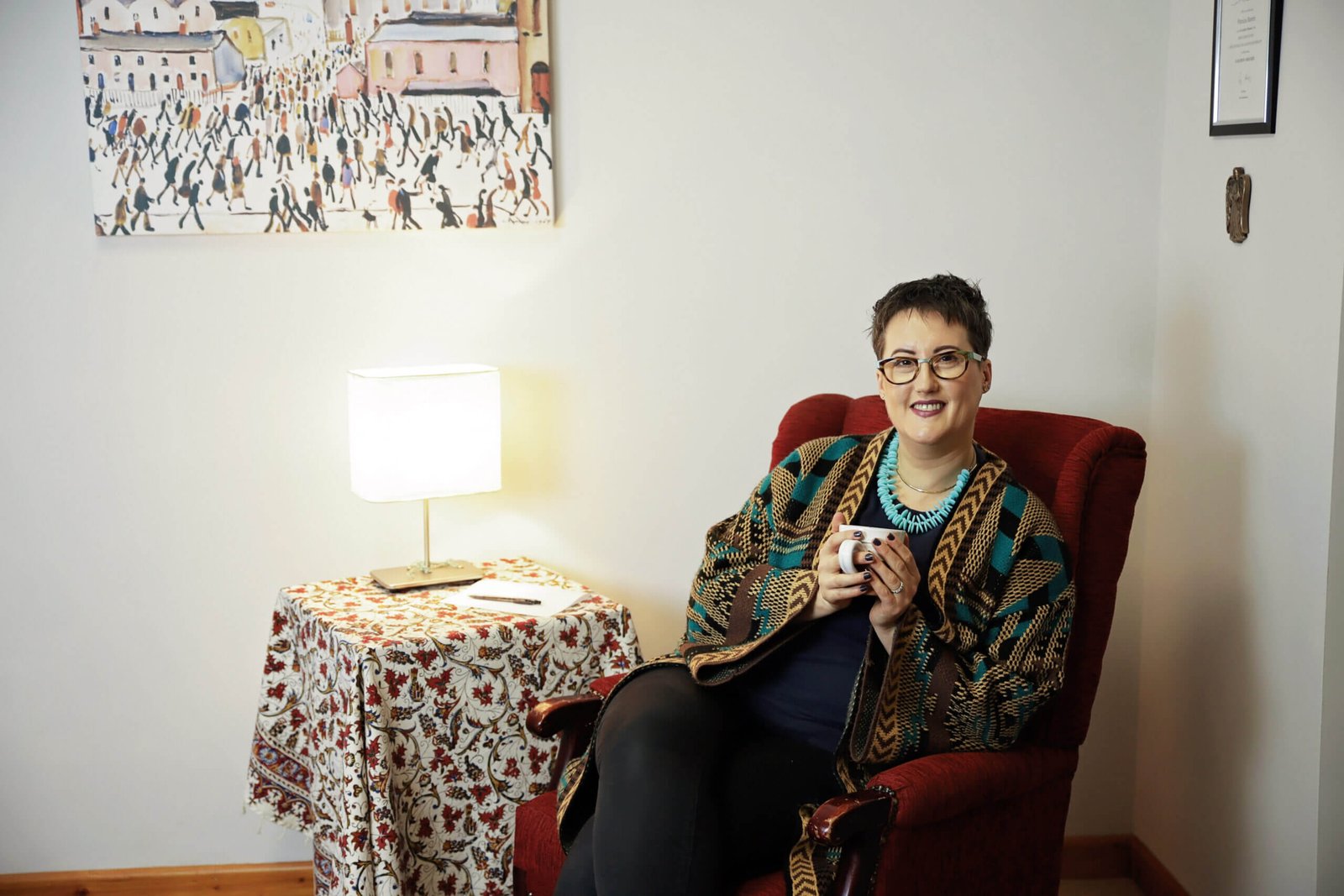What is an authoritarian partner and parent?
In my experience as a psychotherapist, having an authoritarian partner is a significant strain within the family. When couples initially meet, it’s usually because they share similar values and ethos. Whether it’s spending money, how they enjoy their time together and life goals there is usually a middle ground with a little bit of leeway either side, but when children add to the mix things change. There are no set rules on how to parent, but when I meet couples whose parenting styles differ, one or both parties have very fixed ideas on how parenting should be in their household.
An authoritarian parent can be described as someone who is one of, or a mix of, the following:
Is strict and inflexible
Shouts and/or uses facial expressions which can be scary for children
Wants to/uses harsh discipline to teach children lessons
Can want to punish children to help them learn
Is hard on children
Doesn’t pay attention to emotions and can want to control behaviour
Doesn’t want to talk and doesn’t listen
Can’t talk without becoming angry or moody
Isn’t receptive to talking and discussions
Where does authoritarian parenting come from?
We know that authoritative parenting styles are a repeat of a parent’s childhood experiences, however the tricky bit of this is that some parents don’t see these traits in themselves. Authoritarian parents who I’ve met are usually so used to being the way they are they find it very hard to see that they are impacting those around them in a negative way.
Every parent gets activated by things their children say or do. At the end of this parenting tips and advice blog I am going to leave some books that will help you all. But the most important part of parenting isn’t what you know, it’s how you relate to your children and family. As children age, your childhood memories get activated inside and you feel how you were treated and responded, or reacted, to. When a parent is being authoritative, it’s usually because they’re treating a child how they were treated themselves.
“It never did me any harm”. How an authoritarian parenting approach impacts children

Something I hear so often is parents saying is, “having tough parents never did me any harm”. My role as a therapist isn’t to disagree with someone’s personal experiences but where children are concerned the conversation is always around “how is this working for your child?”.
So often I hear parents say that without a firmer way of parenting is “weak, letting the kids get away with too much or disrespectful”, but infact the opposite is true. Children who are the receivers of authoritarian parenting quickly begin to either shut off their emotions, or turn them inward which is dangerous for their emotional development. There’s two languages we all speak (the language of logic and the language of feelings), but children really live by the language of their feelings for the first ten or so years of their lives until the language and logic parts are fully connected.
Children need help with their feelings
Authoritarian parenting focuses only on logic, which means that children’s emotional development has no co-regulation which in turn becomes children’s ability to emotionally regulate. My eighteen years working with families is that strict parenting impacts children deeply as they develop an inability to regulate their emotions which can lead to significantly increased feelings of shame, anxiety, anger, self-harm and suicidal thoughts.
On a practical level, my experience of working closely with teens who have authoritative parents is that the teens find decision making difficult and this often follows them into adulthood. However, if there is another parent who has a different parenting approach and can balance out and dilute the impact of the authoritarian partner, this helps the impact for children.
What is emotional regulation?
This is a big question and one that I will answer in a separate blog. But for the moment let’s explore a little about what emotional regulation is and the how an authoritative parenting style impacts this.
Children are not born with the ability to regulate their emotions. Emotional regulation happens through a process of co-regulation which is when a parent regulates their feelings first in a situation, then the child can emotionally plug into them and over time their central nervous system begins to develop an internal system where it can find safeness inside and regulate.
I must empahsise that this takes years – I mean, think of yourself as an adult, can you regulate your emotions all the time? Probably not! And a difficulty with having an authoritarian partner is that children them miss the opportunity to learn how to co-regulate and their emotions become stuck inwards or expressed through anger, reduced listening and a reduced ability to follow instructions. In short, without co-regulation children don’t get the opportunity to feel accepted by their parent(s), so find it very difficult to accept themselves.
Important steps for parents to take
Children internalise what’s going on around them so it’s vitally important that parents/a parent let’s their child know that they are not the problem. When faced with having a strict, controlling and angry parent a child will think that this is because of something that they are doing or saying, or think it’s just because of them.
Telling a child they are not the problem is step 1, step 2 is acting in a way that helps them to believe this. My experience has been that authoritarian parents usually shout and control through fear, so here’s a video about shouting less which I hope will help you to put practical steps in place to dial down any behaviour that is impacting on your child and relationship.
How to help an authoritarian partner
Everybody parents from their parenting default mode which is basically your inner parenting programming and repeating the parenting that you received. However, this doesn’t mean that an authoritarian partner can’t change and take responsibility for how they are impacting their family and relationships.
There’s usually two types of authoritarian parent – one who is really hurt and doesn’t know how to communicate in a more helpful and less controlling way – and another who is dangerous and unsafe logistically and emotionally to be around, so please do take caution when broaching conversations.
Remember that you can only help up to a certain point. The other parent/authoritative partner must be proactive and motivated to change themselves and there is plenty of help they can avail of.
Tips for open communication
The first place to start in creating change is talking using clear and open communication (if you’ve decided that this is safe for you and your children, if not seek help from Women’s Aid, Mnà Feasa or The Garda/local police).
Here’s some important tips to remember when talking with an authoritative parent:
- Whether this is a new conversation or ground well trodden, the other parents still might not get your point. If they weren’t treated with kindness as a child being asked to be kinder may be totally unfamiliar.
- You are pointing out your partners lack of awareness which may be challenging, so having a third party might be helpful. I offer one to one private parenting consultations where difference can be aired out and worked through alongside practical strategies for change.
- Be specific – people often don’t have the awareness of a situation when they’re in it.
- Try to be calm. I know that there’s nothing more emotional then the wellbeing of your children (mum of three over here!), but authoritative people usually don’t have great skills for self regulation so this conversation may get heated
- Be honest. You can’t be in control of someone else’s behaviour and it’s not your job to keep the peace between a parent and their children. This is their relationship to take control of.
- Acknowledge how hard you are working to be a calm parent for your family – no parent gets it right all the time, but it’s the being prepared to work at it that’s the important bit.
- You could start by talking about what kind of children you’re hoping to raise and working backwards from there. Remember that children become how they were treated. Here’s an article I was asked to contribute to in the Irish Examiner about the Top 10 ways to raise a happy child, hopefully it offers some inspiration.
Parenting resources
Here’s a list of some of my favourite parenting tips and advice resources which will help your partner And don’t forget to show them this blog too! Information is so powerful in helpful to create change.
- Books: Dan Siegal – The Whole Brain Child & No-Drama Discipline
- The Mum Mind Podcast, listen on Apple or Spotify where I answer your parenting questions
- Join the Calm Parenting Community – on the go support from me and an online community of like minded parents through our app
- Book: Strange Situation
What children need from their parents
There are no other team type scenarios where there isn’t extensive work put into communication and team building to ensure the desired outcome is achieved. Think of all the team bonding activities and HR development policies to help people work together! I meet many couples who come for a parenting consultation to talk through their parenting styles and reach middle ground.
It’s so important because parents don’t have to be identical in their parenting approaches. Children are looking for consistent and predictable relationships where they know how boundaries and safety looks, feels and sounds within their family. Having parents at opposite ends of the parenting spectrum is confusing for children and counter active in helping your child get a good sense of emotional safety and identity. Children don’t need perfect parents but they do need parents who are willing to change systems and patterns that aren’t helpful. This then teaches children that we all have the power to change.
What to do if your partner won’t change
If you’ve spoken to your partner and you aren’t being heard or can’t reach common ground there’s still parenting strategies that you can adopt to reduce the impact of authoritative parenting on your children. You will have to play detective and tune into your child(rens) behaviours to see how they are. All behaviour is communication, so take note of how your child is acting and use your intuition to know if they are ok and where they need your help. If you’d like on the go help knowing what to do and say to help your children, join my online parenting support, The Calm Parenting Community where you can chat with me daily and be supported through life as it unfolds.
It’s also important to say that I’ve worked with families who have separated over different parenting styles.

Hello – I’m Bethan, a psychotherapist and Mum of 3 and my work with families spams 18 years. Parenting has taken me on the wildest ride of my life and I know first hand how hard parenting is.
It’s a great feeling sitting back knowing you’ve done your best and I can’t wait to support you to get that feeling too.
Make sure you’ve my free 5 Steps to Calmer Parenting and if you’re looking for immediate answers join the Calm Parenting Community, book a Parenting Consultation or if you’re unsure what’s best for you book a free call.
Be the change your children need.

